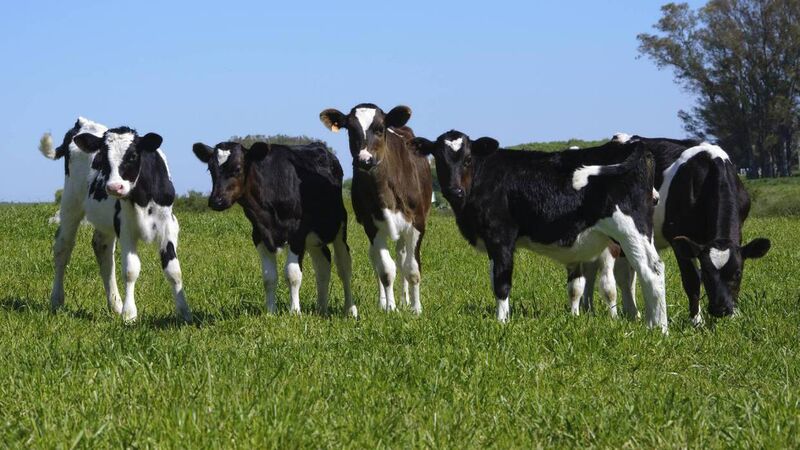We need national food strategy - and Cork is leading the way

Climate and environment researcher Sadhbh O’Neill recently asked the question, isn’t it time to start the conversation about sustainable food systems, and to get our public health agencies to actively promote sustainable diets?
“Specifically, livestock’s long shadow will have to be reduced: meat and dairy provide only 13% of calories and about 30% of protein globally yet are responsible for nearly 85% of the greenhouse gas emissions association with food production, as well as a disproportionate level of other key environmental impacts,” she said.
Dr O’Neill acknowledged that the solution is complex and will require every scientific, cultural and behavioural lever we have to be put to work.
“Yet the straightforward and unarguable message that a sustainable diet in the Global North requires reducing consumption of red meat to about 98g per week as recommended by the EAT-Lancet commission (though other experts recommend higher amounts) is not being communicated by any State Agency in Ireland,” added Ms O’Neill.
The DCU lecturer hit the nail on the head when she suggested “the main actors in this non-debate are careful to stay out of the limelight”.
A tweet from the Environmental Protection Agency (EPA) last year advocating less meat was promptly removed because of objections by the Irish Farmers’ Association that reducing red meat consumption is not in line with Government dietary guidelines. These focus almost exclusively on health - dividing food groups into five main shelves with advice on how much to eat from each shelf per day.
There is little reference to the environmental impact of food. Research on building sustainability into dietary guidelines was conducted by safefood in 2021. It looked at what is happening in other countries; attitudes and behaviour of consumers; and sought the opinion of a multidisciplinary team of experts on what a climate-friendly diet should look like, as well as focus group discussions to consider potential challenges.
This comprehensive body of work highlighted that key challenges include structural barriers as well as awareness and scepticism around the impact of food on climate.
The research identified poor understanding of which foods carry the heaviest environmental burden, and an overestimation of the impact of ‘food miles’ over the environmental impact of specific foods such as meat, dairy and fish.
The cost, availability and health of food is more important to consumers than whether it is organic, locally produced or carries a high environmental impact. Almost half of respondents were not interested in eating fewer animal-based foods, although one-in-five said they had started to reduce their consumption of red and processed meat ‘some of the time’.
The views of a multidisciplinary panel of health, environmental, social, political and economic disciplines was also sought. This failed to reach a consensus view on reducing the reliance on animal-based foods and the promotion of plant-based foods along with the promotion of seasonal, local and organic diets and sustainable food consumption.
The expert group recommended further qualitative research with a multidisciplinary expert group in these areas prior to the development of sustainable dietary guidelines.
“Such research may limit future conflicts and facilitate unified and well-supported public messaging, reducing consumer confusion, and encouraging more sustainable diets,” the report stated.
Norway published dietary guidelines in 2023, after the Danish lead in adding climate to the menu. These advocate a predominantly plant-based approach, emphasising an increased intake of vegetables, fruits, legumes and wholegrains.
“Animal product consumption should be limited with a recommended maximum intake of 350g of meat per week,” according to the guidance.
Mounting evidence of the impact of food production on the environment, as well as on health, point to the need for urgent reframing of the national dietary guidelines, underpinned by the latest evidence in terms of both climate and health.
But the reframing of dietary guidelines is only part of the conversation. We also need to think in terms of collective initiatives that maximise supports for growers, producers, retailers and consumers to build a healthy, sustainable, secure and affordable food environment.
Against all the odds, that is exactly what the Cork Food Policy Council (CFPC) is setting out to achieve with the development of a vision for a Food Strategy for Cork 2025-2030.
The CFPC, chaired by Janas Harrington, Senior Lecturer in the Department of Public Health, UCC, is a partnership between representatives of the community, food retail, farming, restaurant/catering, education, environmental and health sectors and local authorities in Cork.
At the launch of a consultation draft document on August 15, Lord Mayor of Cork City, Cllr Dan Boyle stressed the need for public input.
“As we seek to transform to net-zero carbon emissions, Cork city is at an important point in its journey and I think this is the perfect time to have a conversation about food, how we consume it, where it comes from and how we dispose of, or indeed reuse, the waste materials,” he said.
The Cork Food Strategy has 5 goals:
- To create an environment that provides nourishing food for all;
- To build a sustainable and resilient food system;
- A thriving local and diverse food economy;
- To promote a community-centred food environment;
- Lifelong learning and skills
If this sounds very aspirational, the group has been supremely pragmatic in its approach in the last decade.
Measures to improve the quality, availability and accessibility (including cost) of healthy food in Cork have resulted in practical measures like supports to vulnerable groups - communal cooking facilities for those in direct provision and raising awareness of food poverty supports at community level.
Measures to increase urban food growing include supports for small food producers to be able to access land near the city to grow their own food and increasing the city digester and composter facilities for businesses and communities.
Actions to support a thriving local and diverse food economy include the identification of local public procurement options, the support of buying local for community and business sectors, supporting the development of local authority policy around healthy and sustainable food including community gardens, and working directly with local food producers to strengthen their local food networks.
In terms of raising awareness of healthy eating and ways to reduce food waste, the CFPC supports training and gaining skills for everyone within communities around growing and preparing food.
The group are operating on the ground and looking at every citizen from every demographic and ethnic background as they collectively explore what can be achieved to support growers, producers, retailers and consumers to have access to a diet that is healthy, sustainable, secure and affordable.
We need to start the same conversation around building a Food Strategy at national level. Reframing dietary guidelines around sustainability as well as health is just one small part of that conversation.
Dr Catherine Conlon is a public health doctor in Cork and former director of human health and nutrition, safefood







 App?
App?




